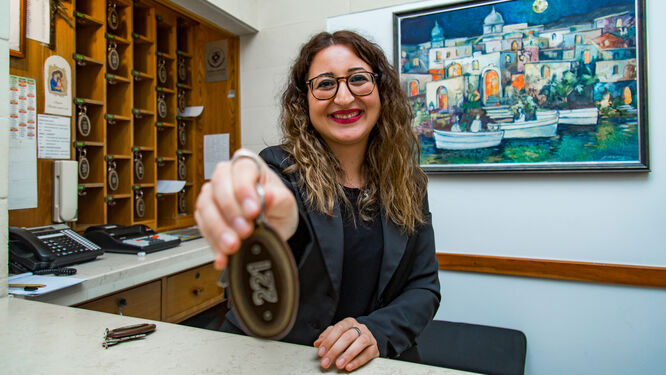How to Make Hotel Reservations
By Rick Steves
I used to travel with absolutely no reservations. Europe at that time was relatively ramshackle, things were cheaper, and fewer people could afford to travel for fun, so there was less competition for budget rooms. I could make itinerary decisions on the go, show up in a new town, browse a handful of lodging choices, and take my pick of affordable, perfectly acceptable rooms. But these days Europe's best-value rooms are generally booked up weeks, often months, in advance.
If you decide to reserve rooms in advance, here are the basics.
Requesting a Reservation
It's usually easiest to book your room through the hotel's website. Many have a reservation-request form built right in. (For the best rates, always use the hotel's official site and not a booking agency's site.) If there's no reservation form, or for complicated requests, send an email. Most hotels are accustomed to guests who speak only English.
In your email, skip the pleasantries and stick to the facts the hotelier wants to know:
- Types of room(s) you want, and for how many people
- Number of nights you'll stay
- Arrival and departure dates, written European style as day/month/year
- Special requests (twin beds vs. double bed, crib, bathroom in the room vs. down the hall, air-conditioning, quiet, view, balcony, ground floor or fewer stairs, wheelchair accessibility, and so on)
- Applicable discounts (such as for Rick Steves readers, for payment in cash, or a promotional rate)
If you wait until you arrive to mention any special needs, the hotelier may not be able to accommodate you.
Nonsmoking rooms: Nearly all of Europe's hotels are completely nonsmoking. In a few countries (such as Germany, Greece, Spain, Ireland, and Britain), some hotels still have a floor or two of designated rooms where guests are allowed to smoke, though lobbies, halls, and breakfast rooms are required to be smoke-free. It's been years since I noticed smokiness in a hotel room. But if you don't want a room that may have been occupied by a smoker, let the hotelier know when you make your reservation.
Confirming a Reservation
Once a guesthouse or hotel replies to your emailed room request citing availability and rates, you must write back to say you want the room.
Most places request a credit-card number to hold your room. If the hotel's website doesn't have a secure form where you can enter the number directly, it's best to share that confidential info via a phone call. Email is far less secure — I mitigate the risk by sending the info in two emails (splitting my number between them).
This is also a good time to read the fine print of the hotel's cancellation policy, especially if your itinerary is iffy.
A deposit generally isn't required at smaller guesthouses, especially those that don't take credit cards — but every now and then I come across ones that ask guests to put money down to hold a room (usually possible via PayPal).
Once you receive a final confirmation, keep the email: It can come in handy on the off chance the hotel loses track of your reservation (or the details of your room request). Some travelers like to bring along a printed copy of each confirmation.
Reconfirming Rooms While You Travel
Always email or call to reconfirm your room reservation a few days in advance. This gives you time to improvise in the unlikely event that something has gone wrong with your reservation. For B&Bs or small hotels, I also call on my day of arrival to tell my host what time I expect to get there (especially important if you expect to arrive late — after 5 p.m.). If you end up running behind on your arrival day, it's helpful to follow up to assure the front-desk staff that you're coming.
Canceling a Reservation
If you must cancel your reservation, it's good karma — and smart — to do so with as much notice as possible, especially for smaller family-run places. Request confirmation of your cancellation in case you are accidentally billed.
Be warned that cancellation policies can be strict — if you cancel on short notice, you could lose your deposit, or be billed for one night…or even your entire stay. Many discount deals come with a substantial financial risk: They require prepayment, with no refunds for cancellations.

